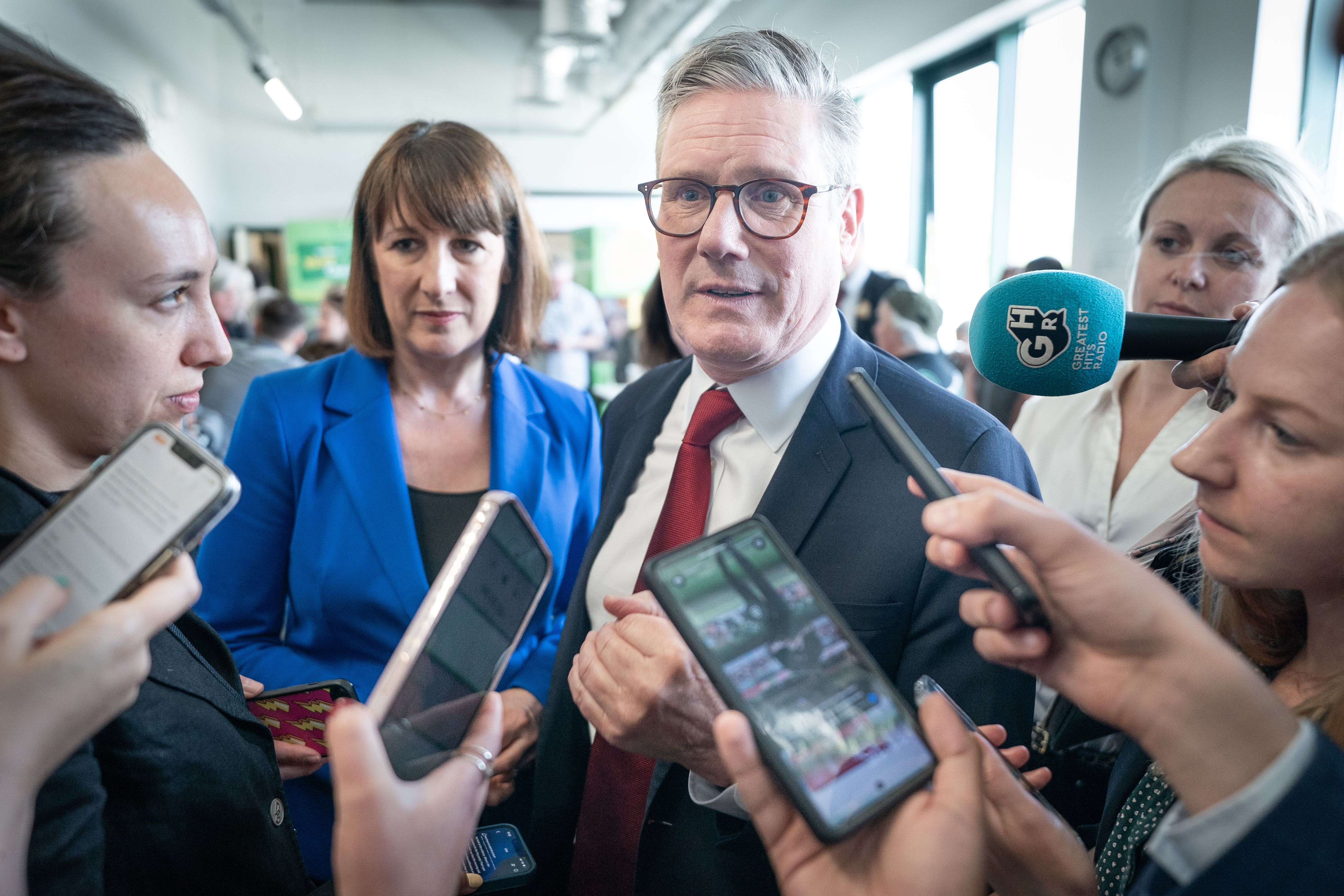Starmer says Corbyn would have been better PM than Johnson in TV grilling
The Labour leader repeatedly ducked questions when asked whether he truly believed his predecessor would have made a great prime minister.

Your support helps us to tell the story
From reproductive rights to climate change to Big Tech, The Independent is on the ground when the story is developing. Whether it's investigating the financials of Elon Musk's pro-Trump PAC or producing our latest documentary, 'The A Word', which shines a light on the American women fighting for reproductive rights, we know how important it is to parse out the facts from the messaging.
At such a critical moment in US history, we need reporters on the ground. Your donation allows us to keep sending journalists to speak to both sides of the story.
The Independent is trusted by Americans across the entire political spectrum. And unlike many other quality news outlets, we choose not to lock Americans out of our reporting and analysis with paywalls. We believe quality journalism should be available to everyone, paid for by those who can afford it.
Your support makes all the difference.Sir Keir Starmer said Jeremy Corbyn would have been a better prime minister than Boris Johnson, as the four main party leaders faced a tough grilling by members of the public.
The BBC Question Time special also featured Liberal Democrat leader Sir Ed Davey and Scotland’s First Minister John Swinney for the SNP, with Prime Minister Rishi Sunak up last.
The Labour leader ducked a volley of questions over whether he truly believed his predecessor would make a “great” prime minister.
In 2019 I campaigned for the Labour Party as I’ve always campaigned for the Labour Party
Host Fiona Bruce repeatedly challenged him over his one-time statement, with Sir Keir insisting: “It wasn’t a question that really arose because I didn’t think we were going to win the election.”
When Bruce asked for a “yes” or “no” answer to whether he meant it, there was laughter from the audience when he did not give one, instead saying that Mr Corbyn would have made a better PM than Mr Johnson.
Sir Keir was also quizzed over his claim last week that the Conservatives had built a “Jeremy Corbyn-style manifesto” that would “load everything into the wheelbarrow” without explaining how to pay for it.
An audience member asked him: “You criticised the Tory manifesto as Jeremy Corbyn-like. Anything you want can go in it, nothing is costed. Why did you back his original manifesto in 2019?”
Sir Keir replied: “In 2019 I campaigned for the Labour Party as I’ve always campaigned for the Labour Party.”
He said that afterwards it became clear the electorate “thought it was too much and they wanted to see something which was fully costed and fully funded”.
Sir Ed, who was first in the line-up, faced difficult questions about his record in the coalition years and as minister in the Horizon scandal.
Challenged by a student over the Lib Dems abandoning their pledge to scrap tuition fees in the coalition government, the Lib Dem leader said: “I understand why your generation lost faith in us. It was a difficult government to be in.”
He said the loss of trust in his party after that period was “very scarring” and admitted he was “not proud” of some of the votes he had to take part in.
Sir Ed was also asked whether he was “proud” of his conduct as postal affairs minister under the coalition government between 2010 and 2012.
He has recently come under fire for failing to do more to help wrongly convicted subpostmasters when he held the brief and for initially refusing to meet Alan Bates in 2010.
Sir Ed said he made “two big mistakes during that time”, including failing to meet the campaigner – although he subsequently did agree to meet him – and not seeing through assurances given to him by the Post Office that Mr Bates’s assertions were not true.
“I’m sorry for not seeing through those lies. There were many ministers of all political parties during this 20-year period who didn’t see through those lies,” he added.
He said he hoped “people go to prison” over “the biggest miscarriage of justice in our country’s history”.
Mr Swinney, asked whether he was going to carry on with independence referenda “until you get the answer you want”, stressed his belief that Scotland would be better as an independent country.
Pressed on how he would boost the manufacturing sector, Mr Swinney said Brexit was the “source of the problems”, and that rejoining the EU would provide a boost to the country’s manufacturing sector.
Mr Sunak will field questions as his faltering campaign is embroiled in a betting scandal, with several people with links to his party or No 10 caught up in allegations about gambling on the date of the July 4 contest.
There is no spot on the programme for Reform UK’s Nigel Farage, who previously demanded a place given his party’s strong showing in the opinion polls.
The BBC responded by insisting Mr Farage and Reform have received coverage across BBC outlets, adding: “The Ofcom guidance gives ‘greater weight on the actual performance of a political party in elections over opinion poll data’ taking into account the ‘greater uncertainty associated with support in opinion polls’.”
The BBC later confirmed an additional Question Time Leaders’ Special, featuring representatives from Reform UK and the Green Party, will be broadcast on June 28.